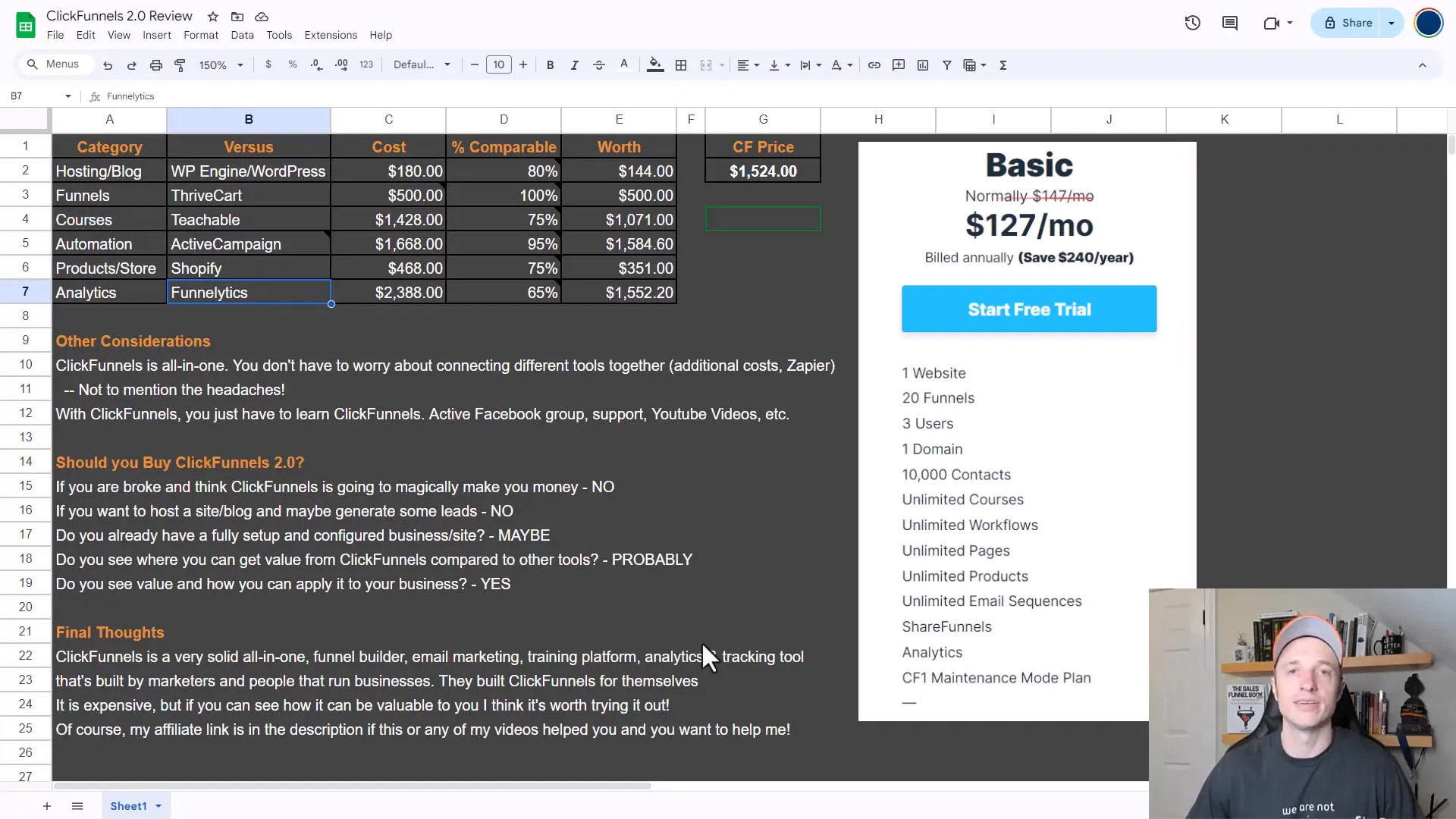In the ever-evolving landscape of digital marketing tools, ClickFunnels 2.0 stands out as a leading all-in-one platform. This ClickFunnels review 2024 provides a detailed examination of its features, pricing, and how it compares to other tools available in the market. Whether you’re a seasoned marketer or a newcomer, understanding the nuances of ClickFunnels can help you make an informed decision.
Table of Contents
What is ClickFunnels 2.0?
ClickFunnels 2.0 is a robust platform that allows users to create websites, build sales funnels, manage email marketing automation, and sell both physical and digital products. It integrates various marketing functionalities into one platform, simplifying the process for business owners and marketers.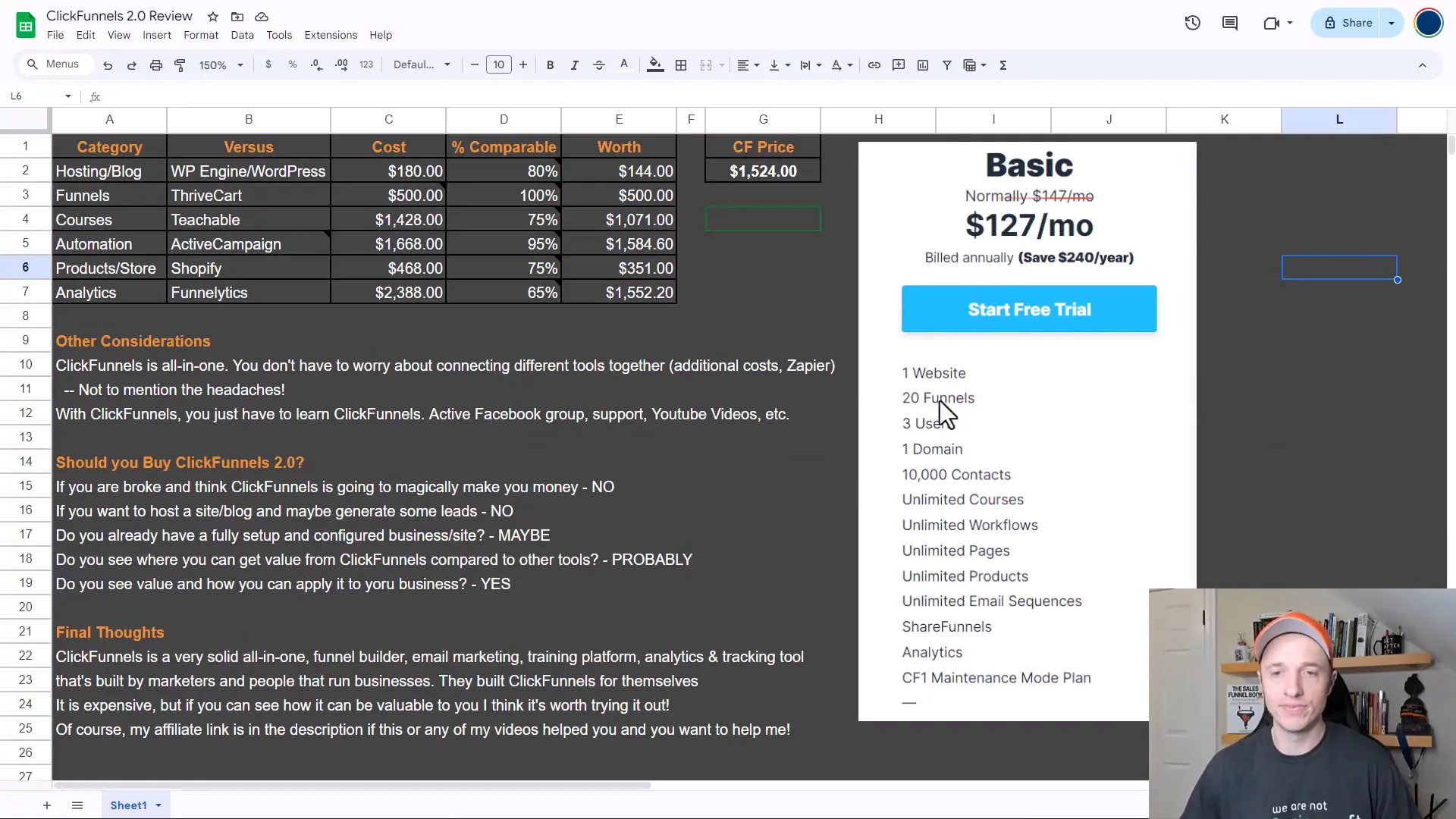
Key Features of ClickFunnels 2.0
ClickFunnels 2.0 offers a variety of features that cater to different marketing needs. Here’s a breakdown of its key functionalities:
- Website and Blog Hosting: ClickFunnels allows users to host websites and create blogs, providing a decent alternative to platforms like WordPress.
- Funnel Creation: Users can build intricate sales funnels that guide potential customers through the buying process.
- Course Creation: The platform supports the creation of online courses, enabling users to monetize their knowledge.
- Email Marketing Automation: ClickFunnels integrates email marketing workflows to nurture leads and convert them into customers.
- Analytics: Built-in analytics tools help users track funnel performance and make data-driven decisions.
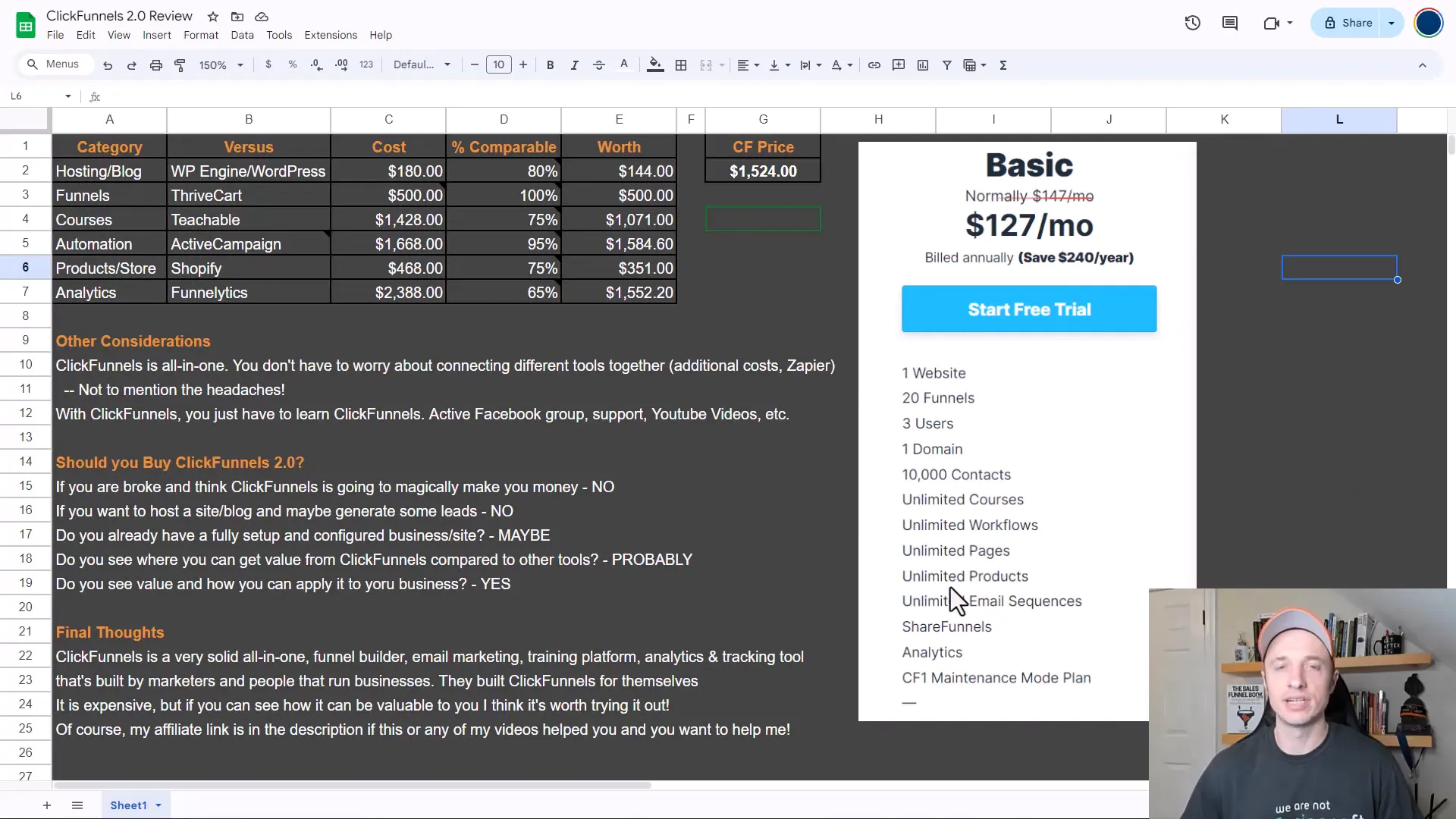
Comparative Analysis: ClickFunnels vs. Other Tools
To evaluate ClickFunnels 2.0’s value, it’s essential to compare it with other popular tools in the market. Here’s how ClickFunnels stacks up against some key competitors:
1. Hosting and Blogging
When comparing ClickFunnels to WP Engine and WordPress, ClickFunnels is about 80% as effective. WP Engine costs approximately $180 per year, while WordPress is free unless additional plugins are used. ClickFunnels provides a solid blogging functionality with SEO considerations, but it doesn’t match WordPress’s extensive features.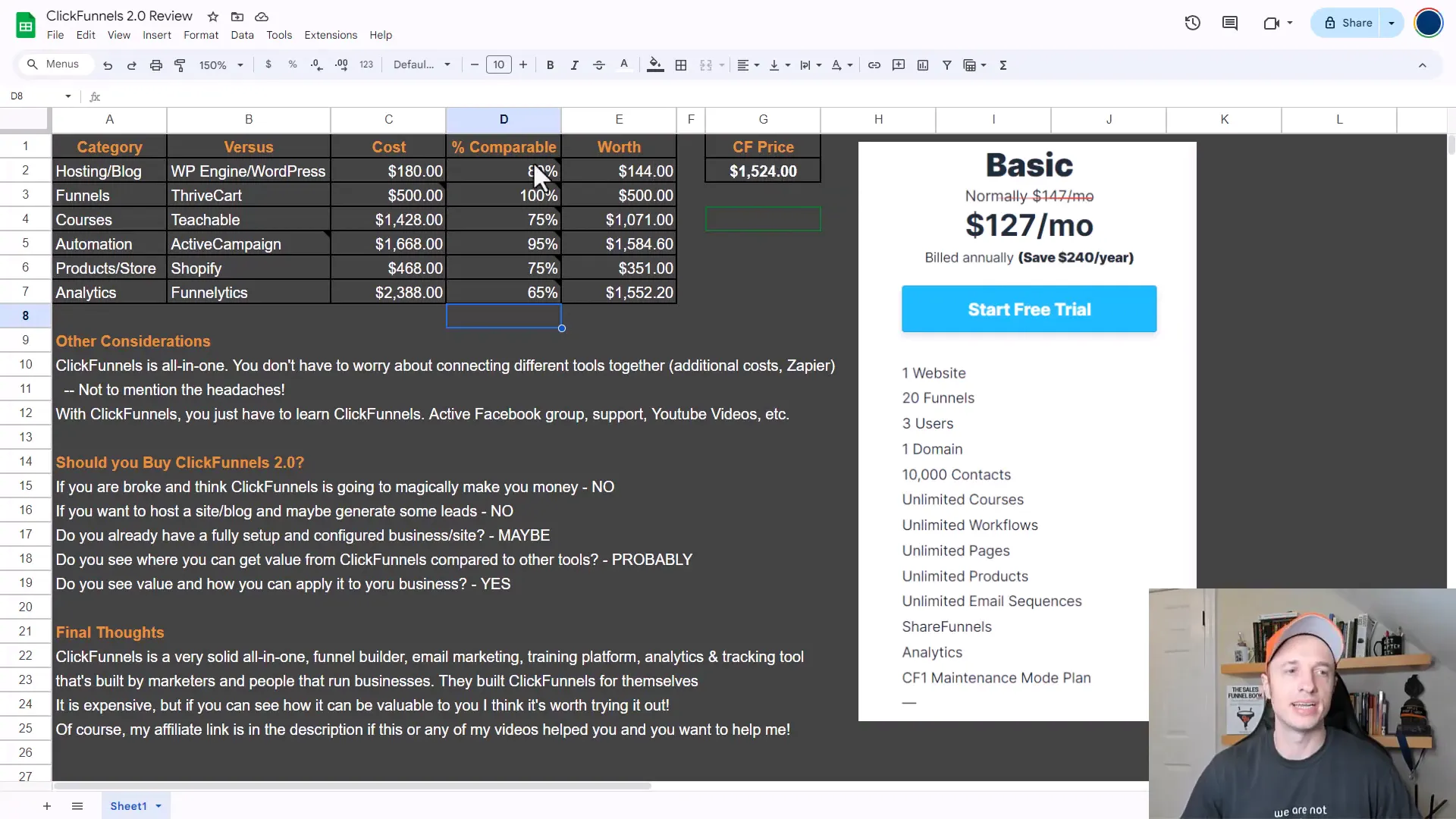
2. Funnel Creation
ClickFunnels is often compared to ThriveCart for funnel creation. ThriveCart has a one-time fee of $500, while ClickFunnels offers more robust features for a monthly subscription. ClickFunnels is more flexible and powerful in creating advanced funnels, making it a better choice for those who require extensive funnel capabilities.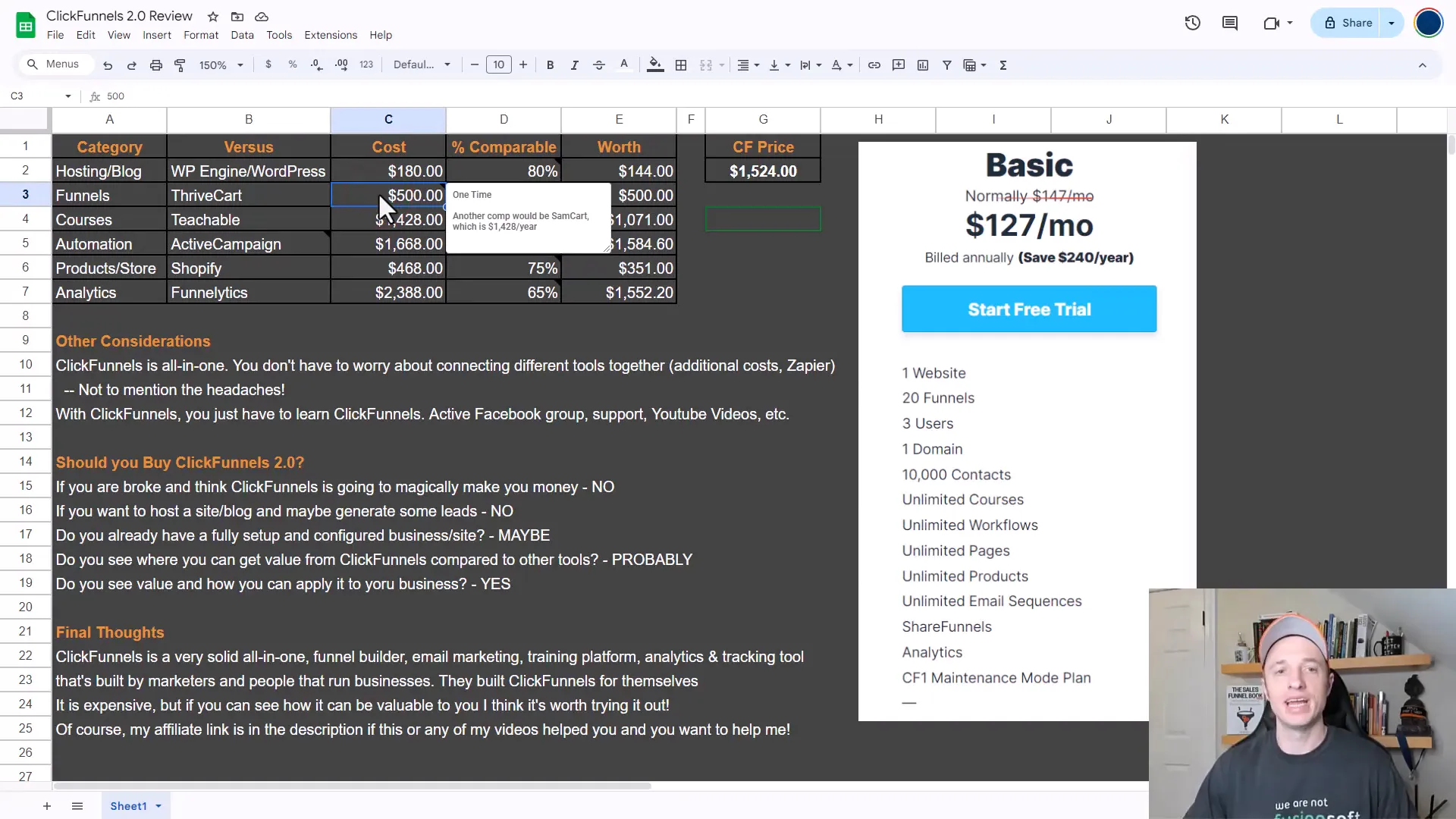
3. Course Creation
In terms of course creation, ClickFunnels competes with Teachable, which charges around $1,428 per year. ClickFunnels offers unlimited courses, while Teachable limits users to 50. However, Teachable excels in bulk uploading of content, making it easier to manage large courses.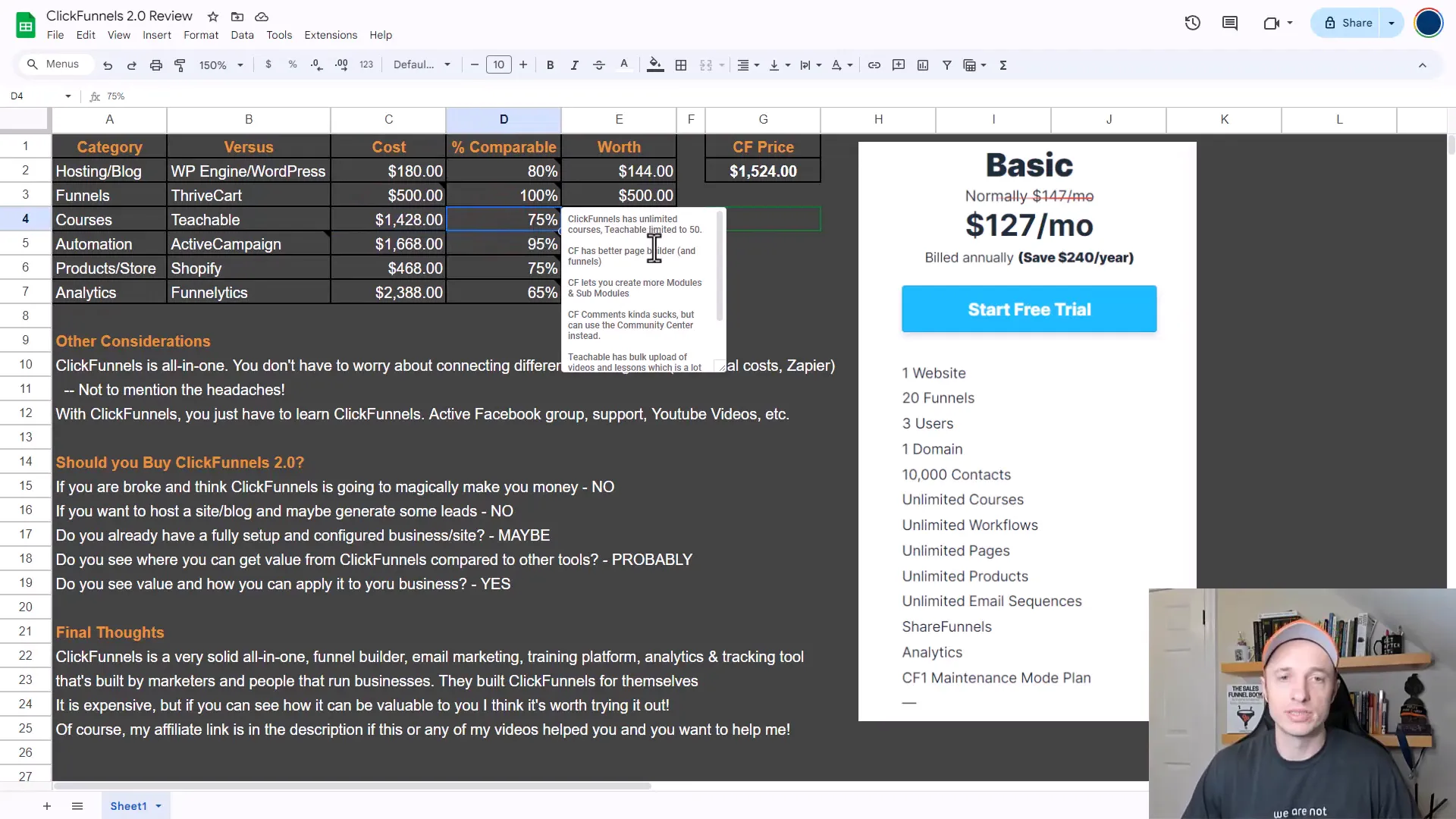
4. Email Marketing Automation
ClickFunnels is compared to ActiveCampaign for email marketing automation. While ActiveCampaign is a leading platform, ClickFunnels provides a comparable service at about 95% effectiveness. The integration process is more seamless within ClickFunnels, making it an attractive option for users looking for an all-in-one solution.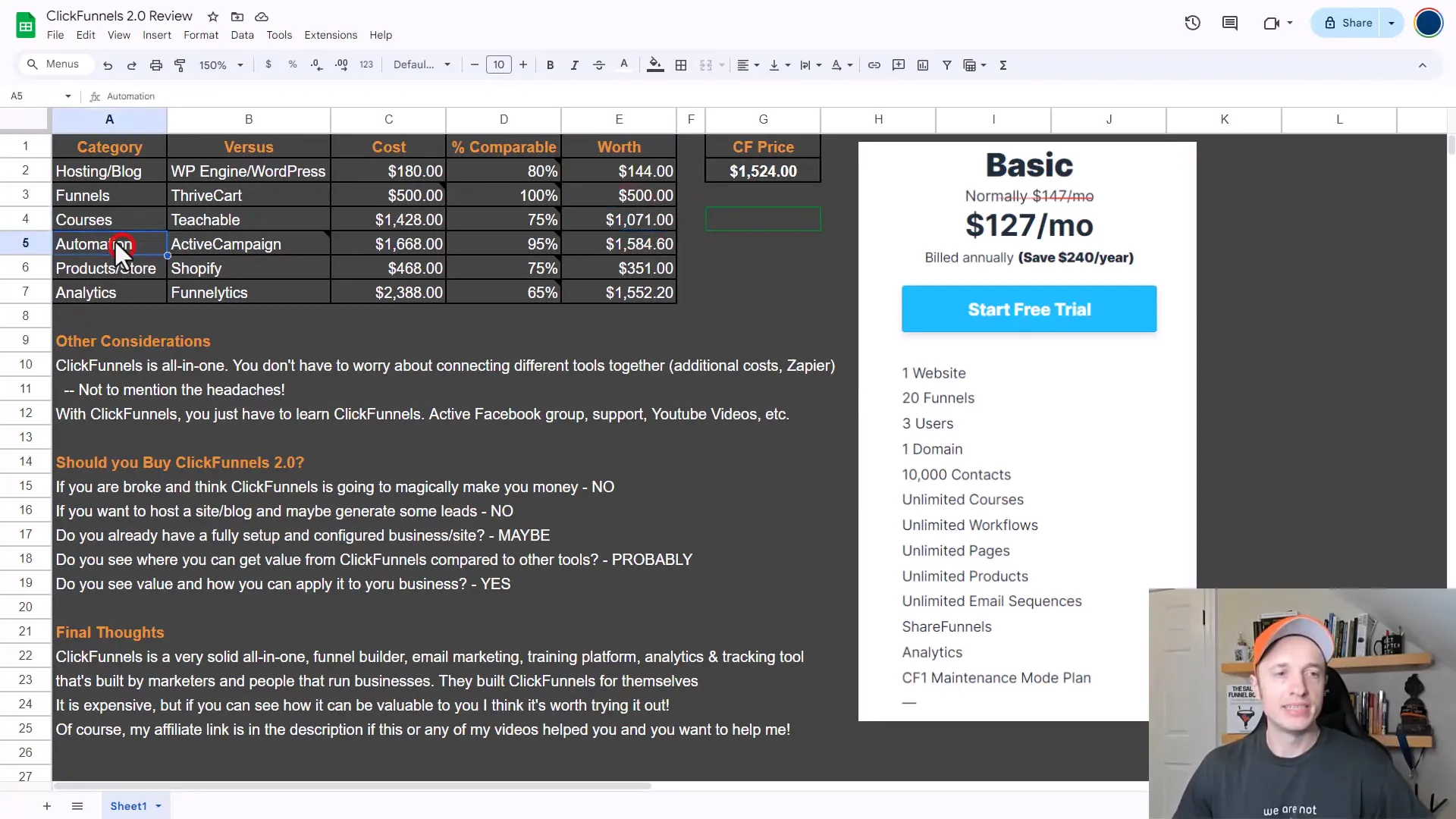
5. E-commerce and Product Management
When it comes to e-commerce, ClickFunnels is compared to Shopify, which costs approximately $468 per year. ClickFunnels is about 75% as effective as Shopify, lacking a traditional shopping cart experience but offering unique store funnels that guide customers through the purchasing process.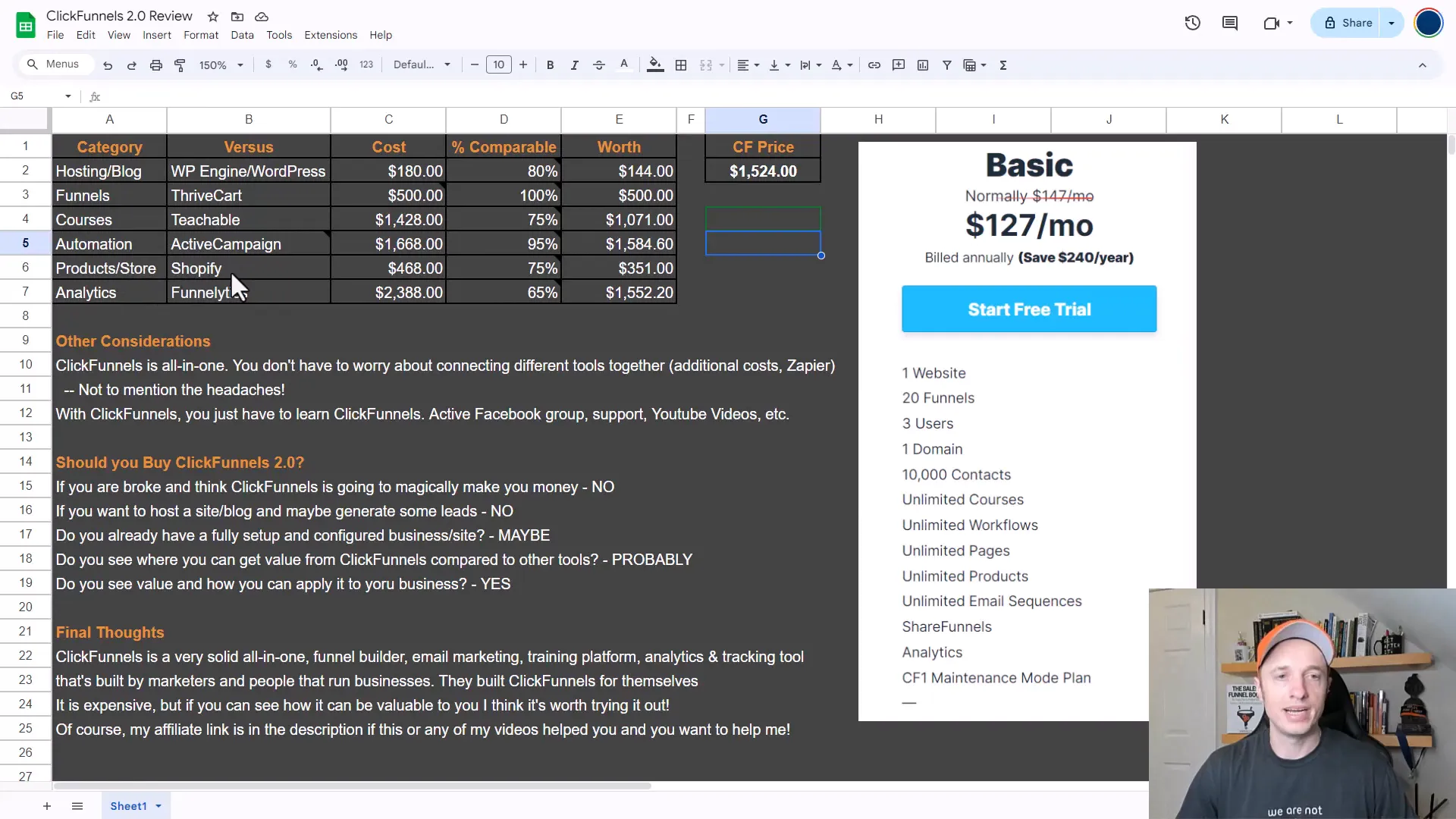
6. Analytics
Finally, for analytics capabilities, ClickFunnels is compared to Funnelytics, which costs about $2,388 per year. ClickFunnels provides basic analytics out of the box but lacks the advanced functionality that Funnelytics offers, making it about 65% as effective.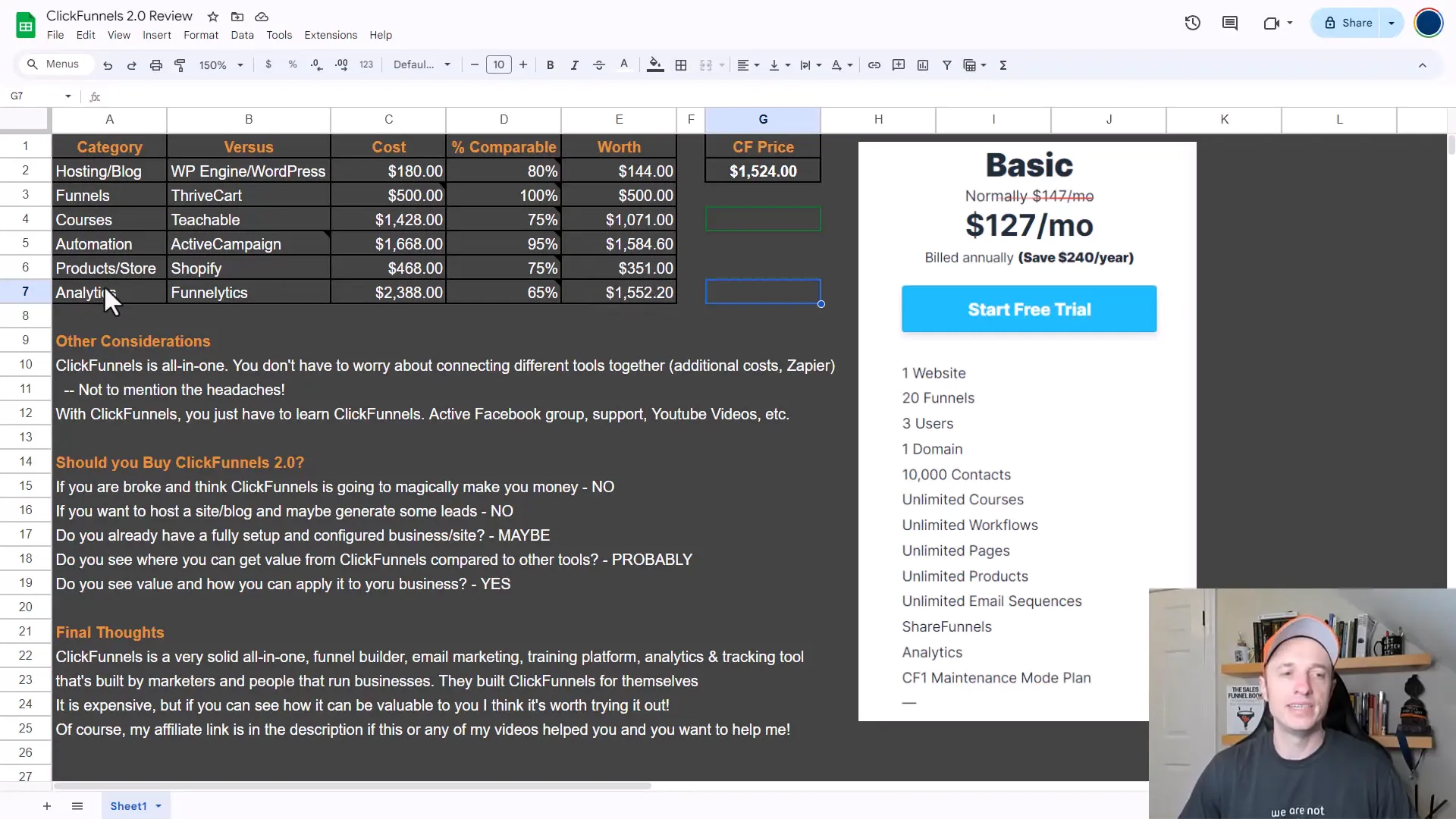
Pricing Structure
The basic ClickFunnels 2.0 plan starts at $127 per month or $1,524 per year. This pricing includes all the core features, making it a competitive option compared to purchasing multiple subscriptions for different tools. The potential savings from using ClickFunnels as an all-in-one solution can be significant.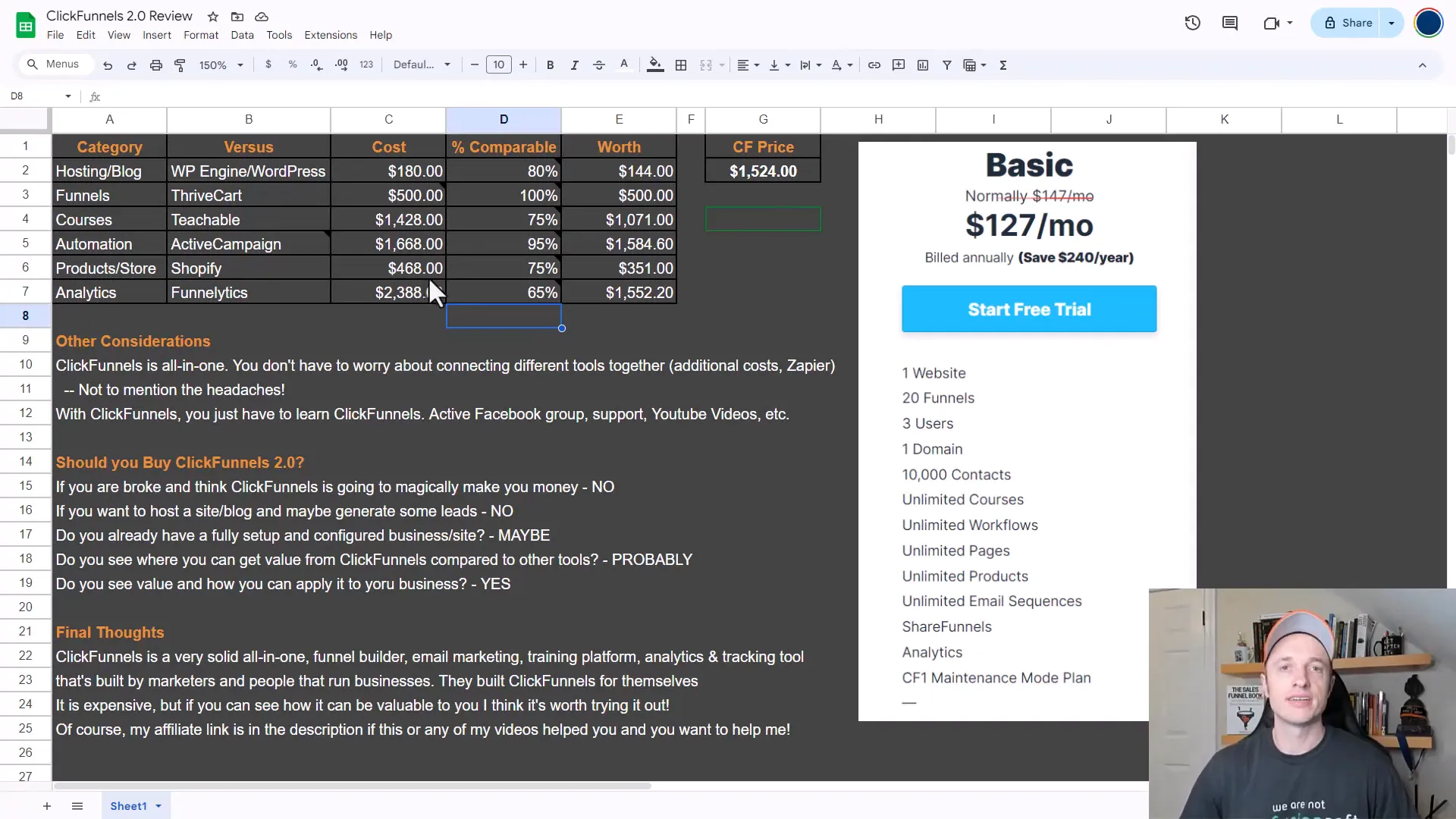
Pros and Cons of ClickFunnels 2.0
Understanding the advantages and disadvantages of ClickFunnels can help users determine if it’s the right fit for their needs.
Pros:
- All-in-one platform that reduces the need for multiple subscriptions.
- Robust funnel creation capabilities with advanced features.
- Seamless integration of email marketing and automation.
- Active community and support resources available.
Cons:
- Higher upfront costs compared to standalone tools.
- Learning curve for new users.
- Limited bulk upload options for course content.
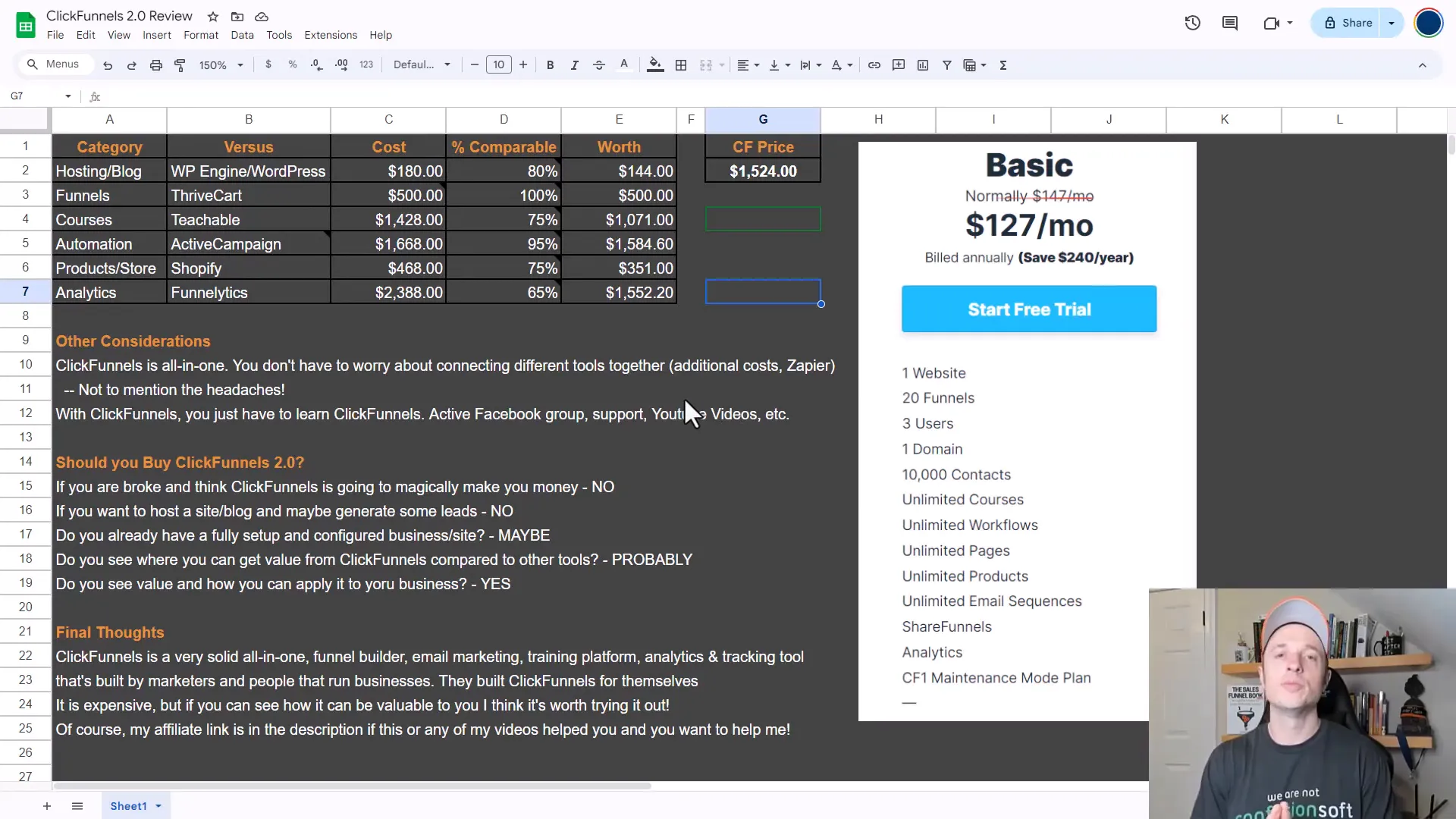
Who Should Use ClickFunnels 2.0?
ClickFunnels is suitable for various types of users:
- Small Business Owners: Those looking to consolidate marketing efforts into a single platform.
- Online Course Creators: Individuals wanting to sell courses with robust funnel capabilities.
- Marketers: Professionals who need extensive funnel creation tools and email automation.
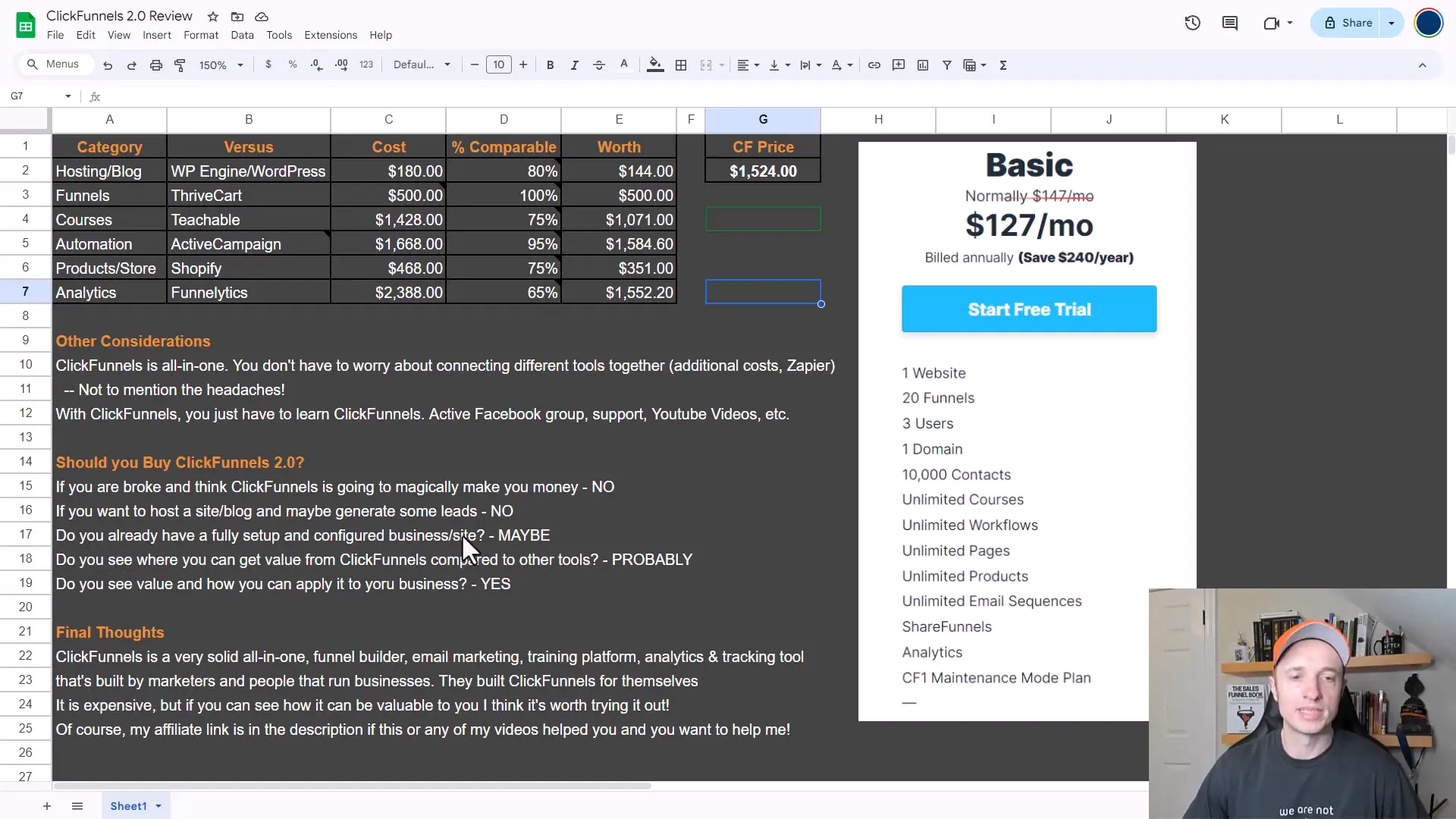
Final Thoughts
ClickFunnels 2.0 is a powerful tool for anyone serious about online marketing and sales. While it may not be the cheapest option available, its extensive features and ability to streamline marketing processes can offer significant value. If you’re ready to consolidate your tools and enhance your marketing efforts, ClickFunnels is worth considering. Plus, the 14-day free trial allows you to explore its capabilities risk-free.
For more information, you can check out the ClickFunnels official page or access detailed reviews and comparisons in the Google Sheets Review.